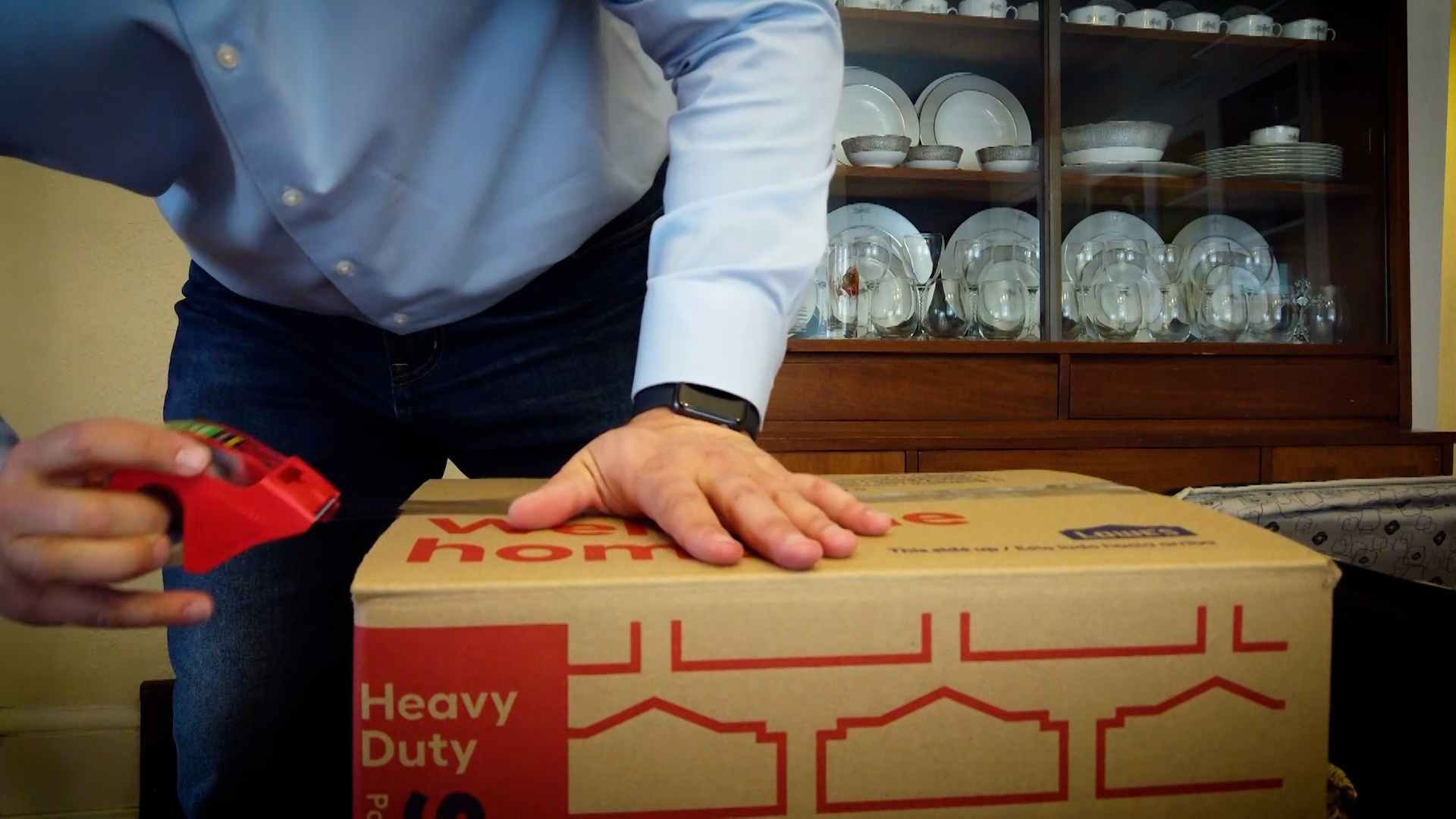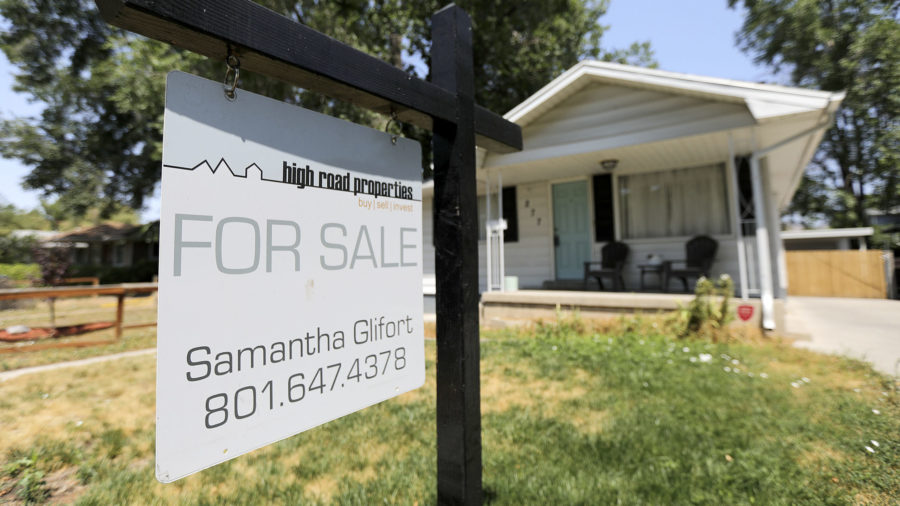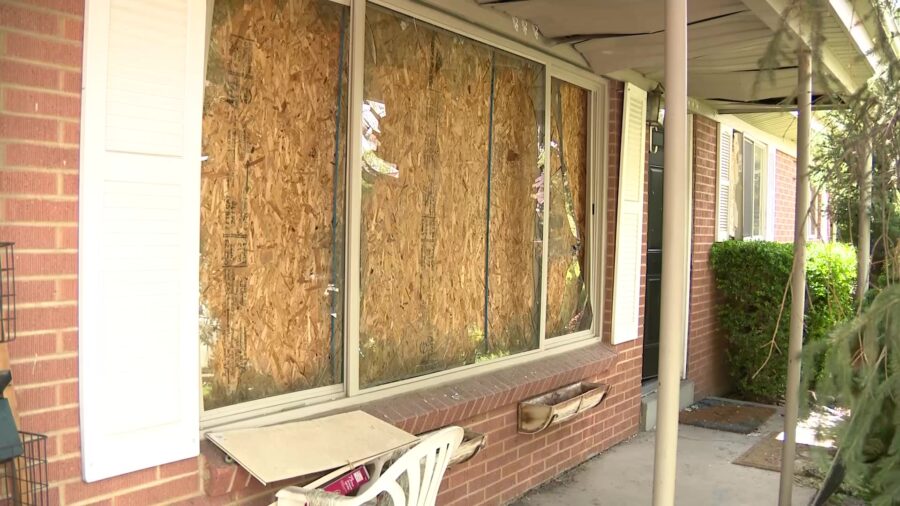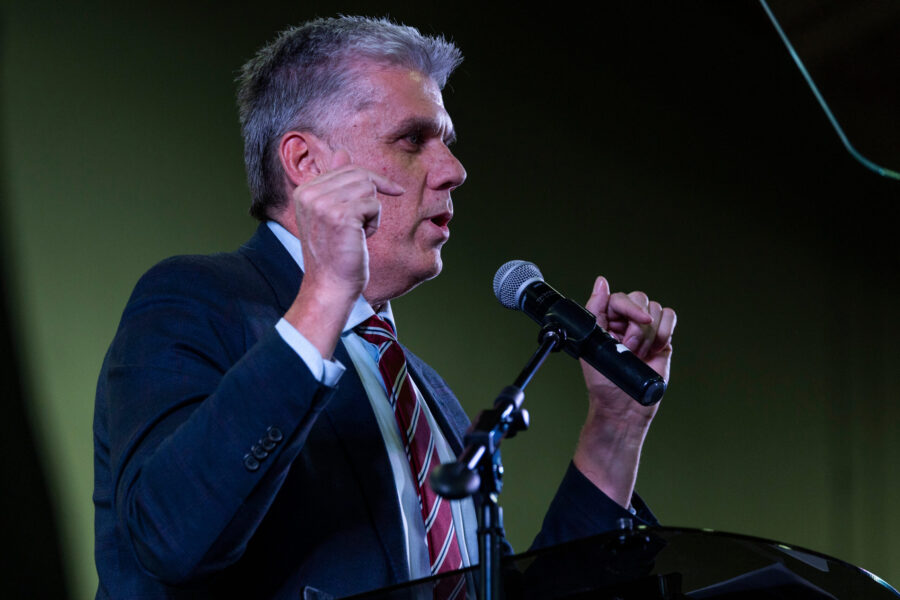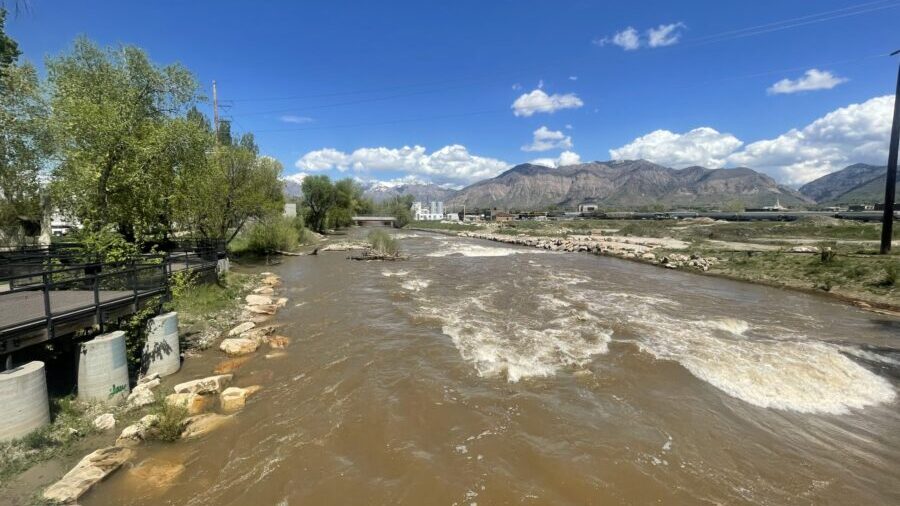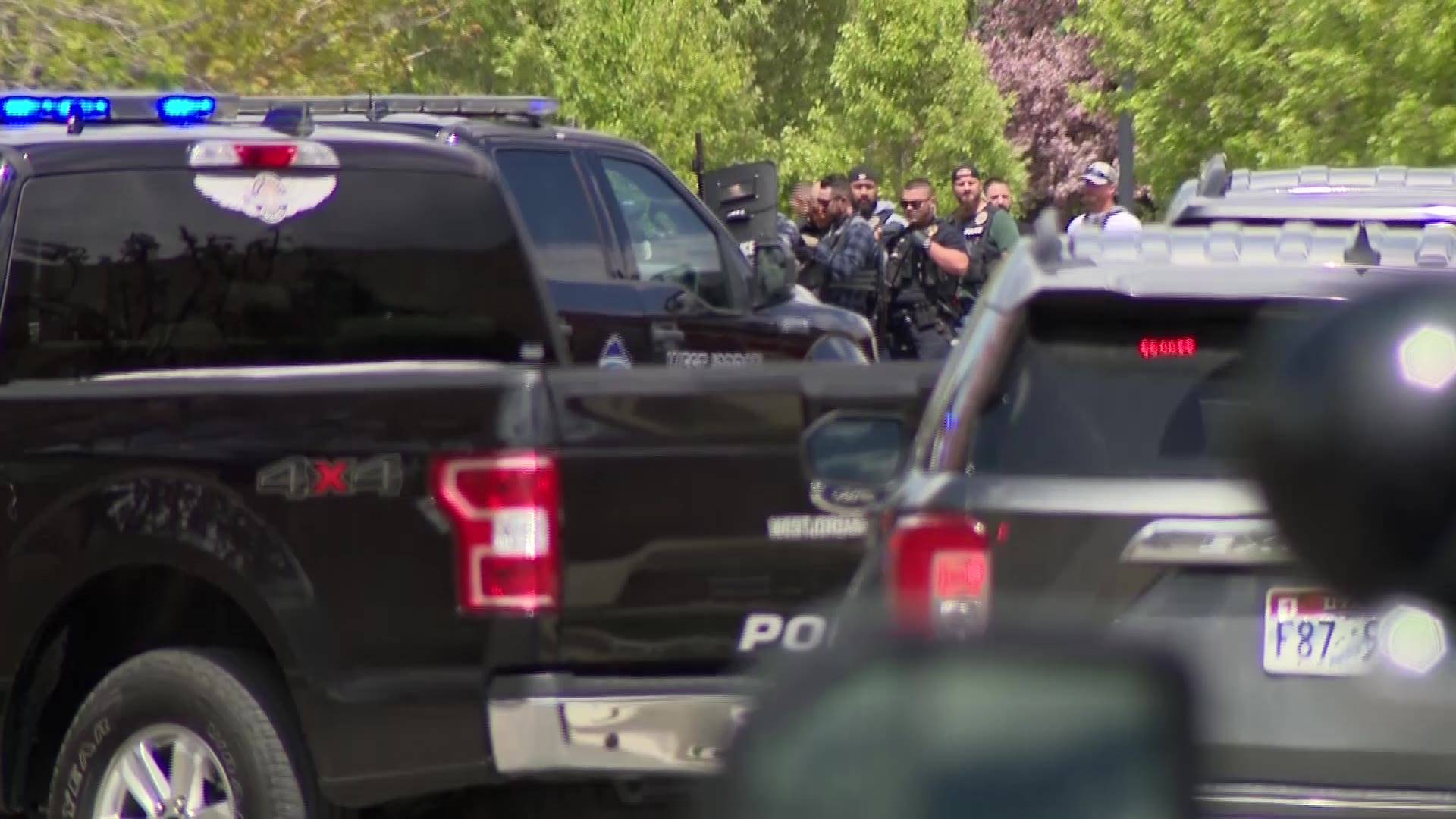Smith applies for revitalization partnership as Salt Lake City arena talks heat up
Apr 16, 2024, 3:49 PM | Updated: 10:29 pm
SALT LAKE CITY — Ryan Smith has applied to participate in a proposed revitalization zone that could include a new arena in downtown Salt Lake City as he reportedly nears a deal to acquire the Arizona Coyotes.
Smith applied to partner with the city as a part of a new state bill that sets up a downtown “revitalization” zone on April 4, according to Salt Lake City officials. A spokesperson for Smith Entertainment Group confirmed that the company had submitted its application, which was required to set SB272 in motion.
Salt Lake City attorney Katherine Lewis said the city is still reviewing the document. Neither side disclosed details of what is proposed in the document, but the two sides are scheduled to talk about the proposal during a public meeting next month.
The bill, which doesn’t technically go into effect until May 1, authorizes Salt Lake City to implement a sales tax increase of up to 0.5% for 30 years within a district of up to 100 acres in downtown Salt Lake, equating to about 10 blocks, surrounding an arena. The money generated could be used to fund the construction of projects or debt service of bonds used to pay for projects, as well as other details, like public safety or road improvements within the zone.
#BREAKING: @slcCouncil chair Victoria Petro tells KSL that Ryan Smith has formally applied to create a revitalization zone in downtown SLC for an NHL arena, and the city will now work with them to dictate its terms.
She said it’s not known yet if it’s a new stadium or redoing…
— Lindsay Aerts (@LindsayOnAir) April 16, 2024
The City Council agreed on Tuesday to set a public hearing on the revitalization zone on May 21 after a follow-up meeting with Smith Entertainment Group on May 7. A final vote on the zone and any sales tax measures is tentatively scheduled to be held on July 2.
An agreement must be reached by Sept. 1, according to the bill. A new revitalization commission — a committee of five people appointed by the Utah Legislature and Gov. Spencer Cox — would have to vote to accept or reject the deal, which would take place through a public meeting. If approved there, the city would have until the end of the year to approve a sales tax increase.
However, most of the project details are yet to be determined. Salt Lake City Councilwoman Victoria Petro said she didn’t know if Smith intends to build a new arena or renovate the Delta Center, but it appears “big construction” could be in downtown’s future.
“We’re not exactly sure what those terms will be (or) where we have consensus. Right now we have consensus on the process,” Petro told KSL, adding that land use, what a sales tax could look like and what projects it will fund will be determined in the coming months.
A revitalization zone
Smith, who owns the Utah Jazz, urged lawmakers to pass SB272 this year to help pay for downtown projects, including a possible new arena for the Jazz and a National Hockey League team. The Delta Center has held NHL exhibitions, but it’s not considered a viable full-time arena because its layout is designed for a basketball court and not for a hockey rink. The difference significantly reduces seating capacity in the building.
But Smith said the process goes beyond an arena. He released a rendering of a new arena on social media in February, which appeared to be at the center of a mixed-used entertainment and residential center around it.
“Our efforts are not about an arena; it’s about revitalizing a downtown that desperately needs investment,” he wrote. “Imagine a downtown experience like this with the NBA/NHL at its core.”
The thought of a National Hockey League in Utah appeared to be theoretic as SB272 went through the legislative process, but it’s now looking like a reality.
Multiple news outlets reported on Friday that Arizona Coyotes players were informed that team owner Alex Meruelo was close to a deal to sell the team to Smith, who will relocate the team later this year. Sportico reported on Monday that the NHL’s executive committee had approved a plan to relocate the team, setting up a final vote by the league’s Board of Governors.
A deal could be finalized as early as this week, according to several NHL insiders.
Piecing together a plan
While the owners and NHL sort out those details, Smith, Salt Lake City, Salt Lake County and Utah leaders are now piecing together details of a zone that may have a new or revamped arena. The entities will spend the next few months settling financial terms, land areas and projects as part of a project area and a participation agreement.
The sides would have to come together on a few other items, including new plans for the downtown zone tackling issues tied to finances, land uses, public assets, public safety, homelessness mitigation, transportation and parking.
Petro said she hopes the city has “as many terms as possible” figured out by the May 21 meeting. That includes working around concerns near the Delta Center, such as impacts to the historic Japantown neighborhood.
The city would then take any feedback from that meeting — as well as all other public meetings over the next two months — and hammer out additional details before voting on any tax increase in July.
“We have been proposed to, but we have not decided where we’re going to live or how we’re going to split the finances,” she said. “All of those things are going to be discussed ad nauseam.”
The City Council can vote to endorse or reject the project area, participation agreement or both — and they can can vote to endorse a deal with amendments, Lewis explained to council members during an informational meeting Tuesday evening. Any amendments would have to be agreed to by all parties.
If agreements are rejected, Smith and Salt Lake City can work together on a new project area or participation agreement by the Sept. 1 deadline. Lewis said the city would also need to adopt any applicable zoning changes by September.
“There are duel things happening — negotiation on the terms of the participation agreement and also any zoning changes that might be necessary to effectuate that plan,” she said.
If the two sides agree, it’s sent to the revitalization committee. The committee would have to vote within 30 days of any agreement. If approved, it’s sent back to the City Council to finalize any sales tax adoption. The whole process is required to be finished by Dec. 31.
A tight timeline
Some council members appeared to be concerned with the tight timeline outlined in the bill during Tuesday’s meeting. Both Salt Lake City councilmen Alejandro Puy and Darin Mano expressed concerns about finalizing an agreement in 4½ months.
But that’s also why the vote is tentatively scheduled for July 2. Lewis explained it’s a conservative date that would allow all sides to work toward an agreement by then while leaving almost two full months for Smith and Salt Lake City to hash out any remaining concerns with the plan.
“I would not advise that we wait until Aug. 15 to put this on a City Council agenda,” she said.
City leaders are also aware that there will likely be public sentiment against the plan as the process plays out this summer. Other cities have gone through referendums to set up stadium deals in recent years, only to see the measures fail. It’s ultimately what doomed the Arizona Coyotes last year, leading up to relocation speculation.
A handful of people spoke out against SB272 earlier this year either during public hearings or on social media, including economic experts who pointed to data that indicate stadiums don’t generate much economic return.
Petro said the city is aiming to avoid the “pitfalls” of other cities by focusing on a reinvestment zone surrounding the arena. She said the bill is a large “generational opportunity” to improve Salt Lake City, but it will also be a “massive responsibility” for the city to get it right.
“Everyone wants the best possible outcome,” she said. “There’s going to be disagreement, but I think we’re all good-faith partners who want to arrive at the same conclusion, which is doing something really amazing that has never been done here. … This is a completely new process for all of us.”
Contributing: Aimee Cobabe


